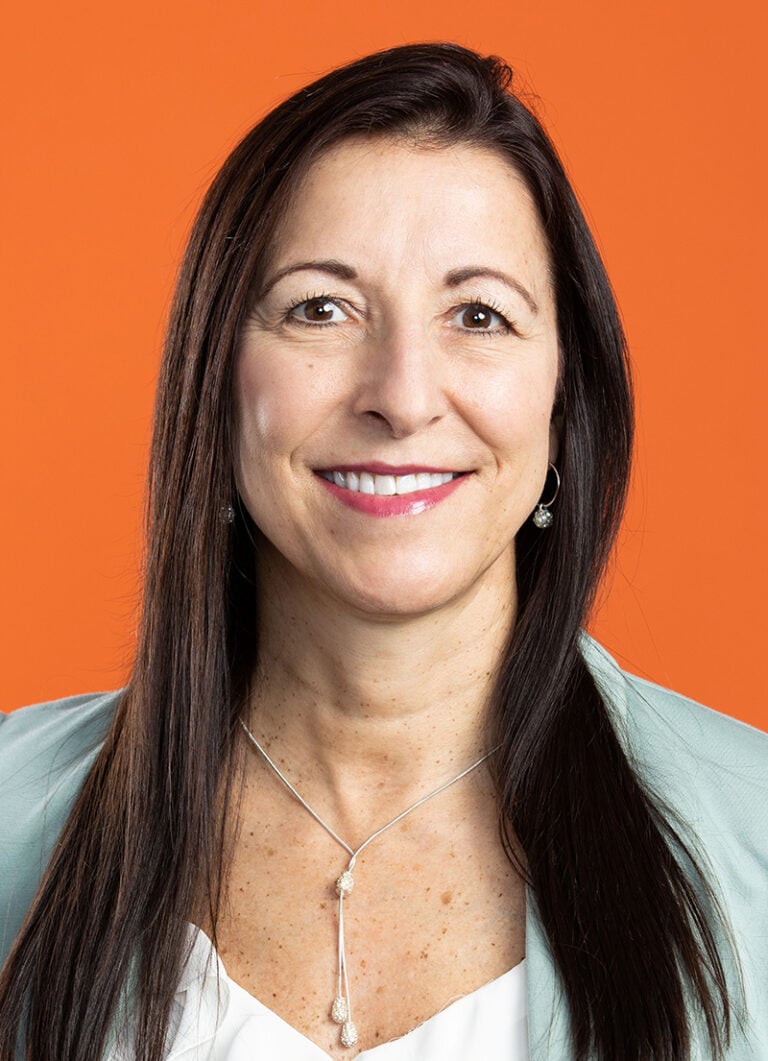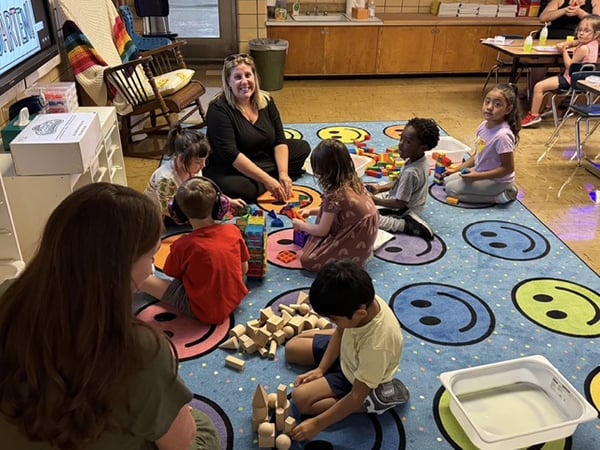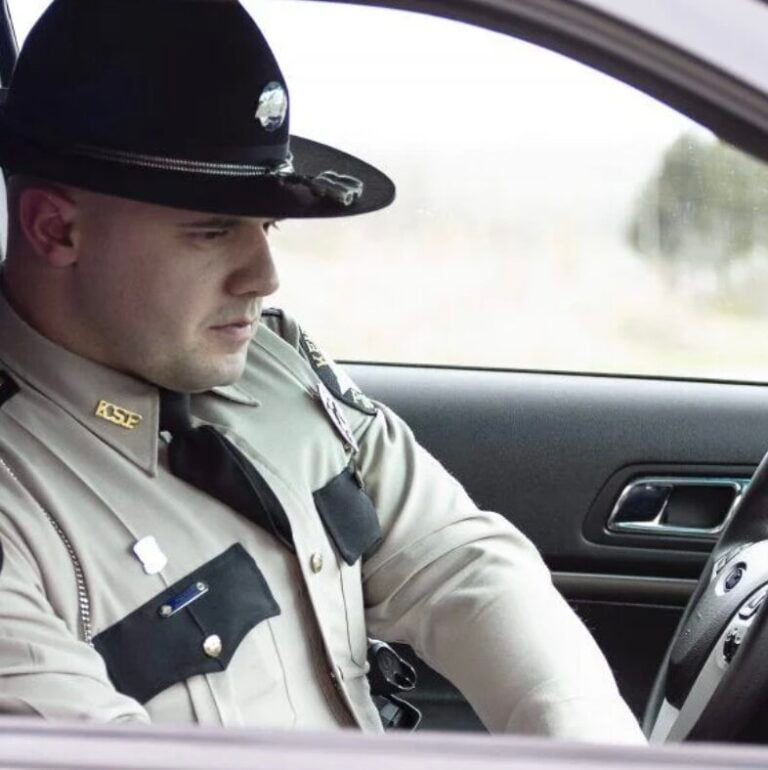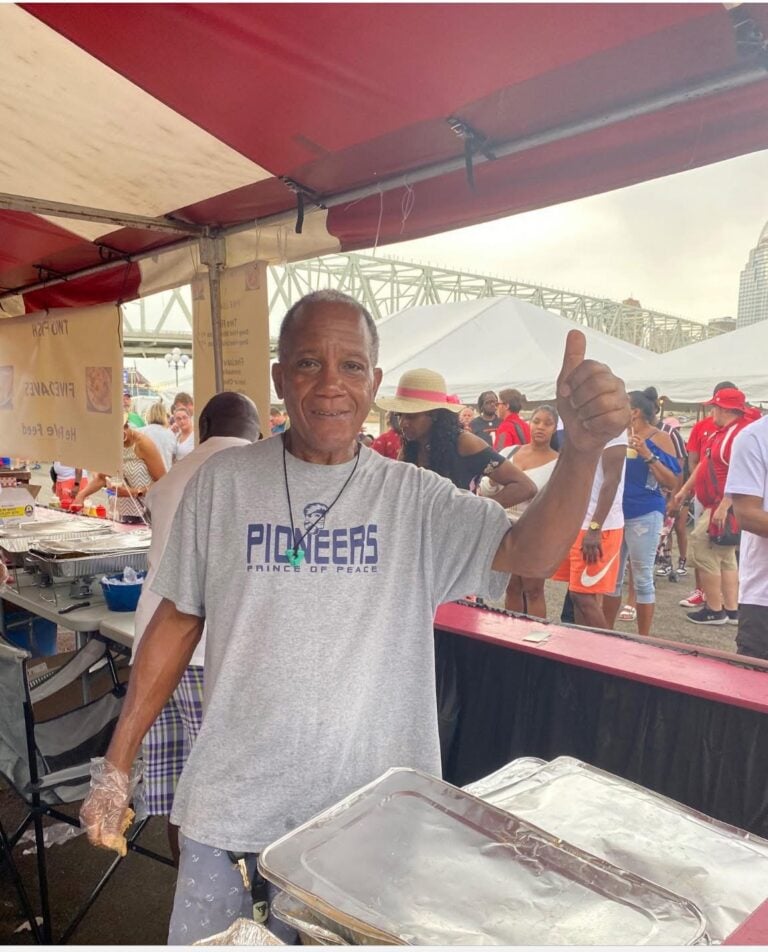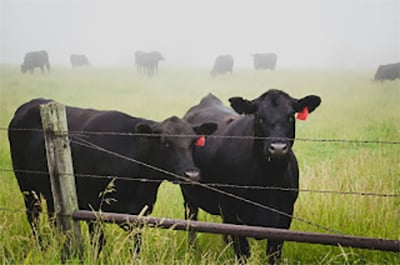Somerset pastor and great-grandpa Johnny Dunbar knew he needed to take notes for the upcoming conversation with a stranger.
“Good Start, like for infants,” Dunbar is heard to say, nearly to himself over the phone, probably already writing it down. “Infant formula.”
This was an important request recently of his church, Heritage Hope Church of God in Somerset, though he’d never met the woman and her crying infant on the other end of the line.

“Well, let me … I’ll see if I can get somebody to do this. We can do this,” Pastor Dunbar said. “Tell me what it is called in case I have to go get it. Because I’m a great-grandpa, I’m not used to picking up formula, ok?”
What social media creator Nikalie Monroe actually wanted by calling Dunbar’s church was nothing so expensive – just a simple yes. When a mother of a starving infant calls in desperate need, who will help her? Which church will say yes?
In the world of social media, Monroe rocketed to the top last week after her recent social experiment: calling churches with a simple request, a single can of baby formula, as she records the exchange. For the record, the crying baby was a recording and she did not accept any cans of formula if offered.
As of last weekend, she’s received 10 offers of help from religious institutions, but 33 refusals, including those from the mega churches of Joel Olsteen in Houston and Charlie Kirk in Phoenix. Some alluded to applications that could take weeks, while others referred her elsewhere, willing to help in ways that didn’t inconvenience them.
Infant formula and diapers are consistently one of the most needed items at food banks.
Following the pandemic, a study published with the National Library of Medicine found that “31% of families who used infant formula indicated that they experienced various challenges in obtaining infant formula, and in response, 33% of families who used formula reported resorting to deleterious [harmful] formula‐feeding practices” such as adding more water to the mix or saving leftover mixture.
Given that we’ve had about five years since the pandemic to resolve such crucial public health needs, one wonders why we are still ignoring the very real crisis of the nation’s working poor with infants. Further, if the federal government continues to refuse this responsibility by halting SNAP benefits, local charities such as neighborhood churches must step up and reaffirm their community value by providing basic supplies for young families in desperate circumstances, no matter where they attend services.
The Islamic Center of Charlotte, North Carolina asked no questions of Monroe other than where she lived, how much formula she needed, and what brand, though there was little question of Monroe being a member of their muslim congregation.
At First Baptist Church of Jeffersontown, a historic black church founded in 1829, the woman who answered Monroe’s call recently was also quick to find a way to help.
“We wouldn’t have it readily available, but … it’s for your baby?” she paused. “Let me see what I can do.” TikTok’s community speculated she was already reaching for her own purse.
The vast majority of responses from larger churches – by a wide margin – showed patronizing sympathy while explaining all of the reasons their house of worship couldn’t scrounge up a single can of baby formula among their thousands of parishioners and millions of dollars in operating budgets.
Some offered referrals — other churches, overly burdened food banks, the Health Department — but very little in the way of actual action.
At the Germantown Baptist Church in Tennessee they told her they actually had a benevolence fund that they could use to help feed her infant, “but it is just for our members.”
Throughout several calls, one gets the feeling she was wasting someone’s time, undeserving of their help and pitiful for trying.
“It’s not something you all could get, and I’d just pick it up?” asked Monroe about the formula at one Kentucky Baptist church.
The church representative sighed. “No,” they said, distastefully. The call was over.
Given that churches enjoy a tax exempt status based in part on their charitable giving, one must wonder exactly who some of them deem worthy of Christian kindness to help keep them off the hook for billions of tax dollars annually. How much worse must hunger get in these communities before the nation’s mega churches step up in answer to that call?
Having listened to dozens of such calls from Monroe to various churches in the south and in Texas, it becomes more clear as to why some Americans are distancing themselves from permanent church membership. According to a Pew Research Center report, the number of agnostic, atheist, or religiously unaffiliated adults in our nation has grown to nearly 29%, up from 26% in 2007.
This dwindling of the faithful has been used as a campaign hot potato for numerous Republicans as of late. But when put into perspective by Monroe’s social experiment, it became more apparent that Americans are leaving the church in light of its shortcomings, not their own.
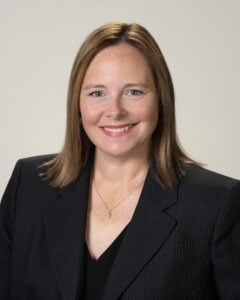
John 2:14-17 tells us “What good is it, my brothers and sisters, if someone claims to have faith but has no deeds? Can such faith save them? … In the same way, faith by itself, if it is not accompanied by action, is dead.”
If the Republican party is truly worried about preserving America’s religious heritage, they would do well to look closer to home on Sunday mornings. If community churches spend more on stage lighting than feeding the hungry on their doorsteps, then they have both lost their soul and the faith of their followers.
Emily Burton Sherman is a writer, educator and journalist who lives in Muhlenberg County. She is a graduate of the University of Kentucky School of Journalism and Media and holds a master’s degree in education from Murray State University. This column first appeared in Forward Kentucky.







